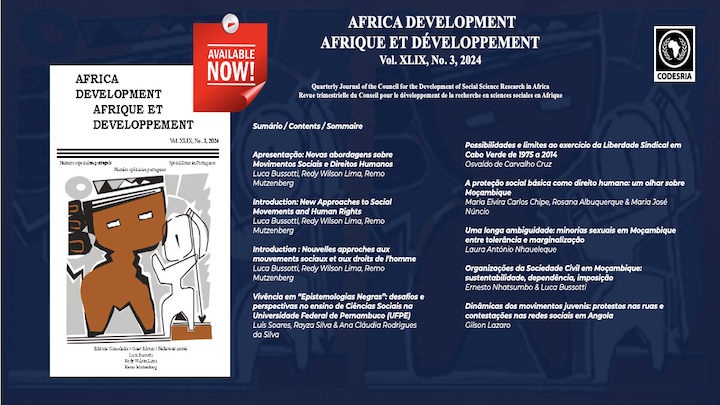Special Focus on Lusophone Africa
We are delighted to announce the release of a special issue of Africa Development | Afrique et Développement, dedicated to new approaches to social movements and human rights in Lusophone Africa. This issue brings together cutting-edge research and critical discussions on key socio-political and economic challenges in Portuguese-speaking African countries.
Guest Editors:
- Luca Bussotti
- Redy Wilson Lima
- Remo Mutzenberg
What’s Inside?
This special issue covers a range of topics that shed light on the evolving landscape of social activism, governance, and human rights across Lusophone Africa:
- The Role of Civil Society in Mozambique
- Trade Union Freedom in Cape Verde (1975–2014)
- Social Protection as a Human Right in Mozambique
- Youth Protests in Angola: Online vs. Offline Activism
Why Should You Read This Special Issue?
As social movements across Africa continue to reshape public discourse, this issue provides essential insights into how activism, governance, and human rights intersect in Lusophone African countries. It serves as an important resource for academics, policymakers, civil society actors, and students seeking to understand the nuances of social change in the region.
We encourage you to explore this edition and share it with colleagues, students, and networks that would benefit from its findings.
